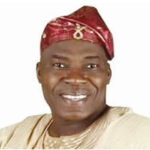
Climate change and air pollution are already killing people “on a grand scale”, a top global warming expert warned Thursday at an energy conference in London.
Professor Nicholas Stern, a Briton, who authored a landmark 2006 report on the economic impact of global warming, made the observation at the Energy Intelligence Forum industry gathering.
“We are killing people on a grand scale with air pollution” and more, Stern told delegates including top executives.
A temperature jump of between three to four degrees Celsius was “still in the realm of possibility”, he added.
Such an increase would be “devastating” and cause extreme or deadly temperatures in densely-populated nations like China and India.
“We’re talking about potential death of hundreds of millions or billions,” the London School of Economics professor noted.
Under the 2015 Paris Agreement, nations have pledged to reach net-zero carbon emissions by the middle of the century with the objective of limiting the increase in global temperatures to two degrees, and preferably to 1.5 degrees.
Experts believe that chances of meeting those objectives are quickly evaporating, and had warned the impact could be severe.
“We haven’t seen a three degree rise for three million years – that’s way before homo sapiens,” Stern said.
A warming of this magnitude could lead to a rise in sea level of 10 to 20 meters, submerging some areas and disrupting life.
“We don’t know how close we are to the collapse of the Amazon system or the thawing of the permafrost” that would release vast amounts of the powerful greenhouse gas methane, or the melting of Antarctic ice.
“But we know enough to recognise those risks,” he added.
Stern insisted that his influential 2006 report, which was labelled alarmist by some at the time, was in fact not.
And he welcomed the energy sector’s initial moves towards transition away from fossil fuels.
“This transition we all embark upon, it’s the growth story of the 21st century,” Stern said, as investments will be needed in new infrastructure and equipment.
And he added that people across the world needed to invest at home, for example with insulation and more efficient heating.
Speaking on the sidelines of the London event, Bochum University Professor Graham Weale told AFP that the transition was overshadowed in Germany by energy security concerns since Russia’s war on Ukraine.
Weale, a former chief economist at power giant RWE, indicated German industry was now in crisis.
“German industry is fighting for its survival now. It was relying on the cheap Russian gas which disappeared almost overnight,” Weale said.
“It’s fighting for any cubic meter of gas (so) the industry has hardly got the bandwidth to plan for its decarbonisation.”
AFP




